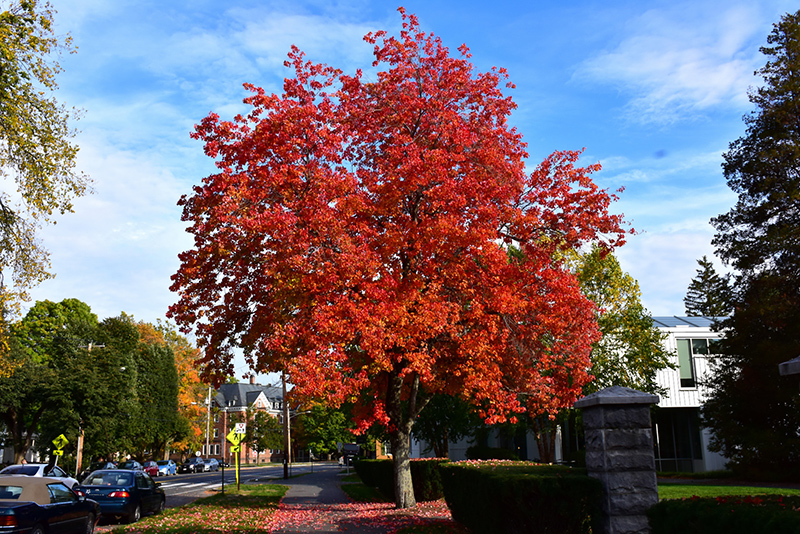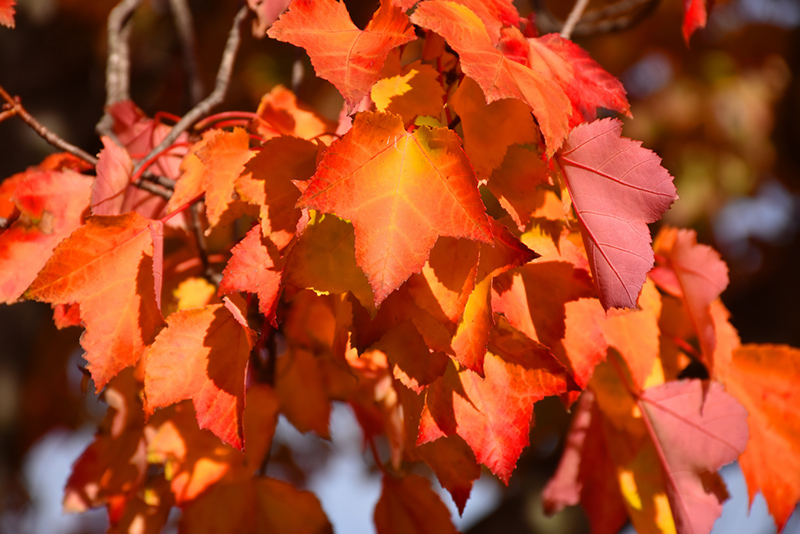Height: 50 feet
Spread: 40 feet
Sunlight:
![]()
Hardiness Zone: 3b
Other Names: Swamp Maple, Scarlet Maple
Description:
This tree lights up consistently red-orange, with hints of yellow in fall; a great shade tree, but quite intolerant of alkaline soils
Ornamental Features
Red Maple features showy clusters of red flowers along the branches in early spring before the leaves. It has green deciduous foliage which emerges red in spring. The lobed leaves turn outstanding shades of red and orange in the fall. It produces red samaras in late spring. The furrowed silver bark and brick red branches add an interesting dimension to the landscape.
Landscape Attributes
Red Maple is a deciduous tree with a shapely oval form. Its average texture blends into the landscape, but can be balanced by one or two finer or coarser trees or shrubs for an effective composition.
This is a relatively low maintenance tree, and should only be pruned in summer after the leaves have fully developed, as it may 'bleed' sap if pruned in late winter or early spring. It has no significant negative characteristics.
Red Maple is recommended for the following landscape applications;
- Accent
- Shade
Planting & Growing
Red Maple will grow to be about 50 feet tall at maturity, with a spread of 40 feet. It has a high canopy with a typical clearance of 7 feet from the ground, and should not be planted underneath power lines. As it matures, the lower branches of this tree can be strategically removed to create a high enough canopy to support unobstructed human traffic underneath. It grows at a medium rate, and under ideal conditions can be expected to live for 80 years or more.
This tree should only be grown in full sunlight. It is quite adaptable, prefering to grow in average to wet conditions, and will even tolerate some standing water. It is not particular as to soil type, but has a definite preference for acidic soils, and is subject to chlorosis (yellowing) of the foliage in alkaline soils. It is somewhat tolerant of urban pollution. This is a selection of a native North American species.
This tool is an online resource representing many of the varieties that we carry over the course of the season, and is intended for informational purposes only. Inventory varies seasonally, so we cannot guarantee that every plant will be in stock at all times - please contact the store directly for current availability. It does not include our entire selection of plants, so be sure to visit our store to see varieties that may not be represented on this list.

